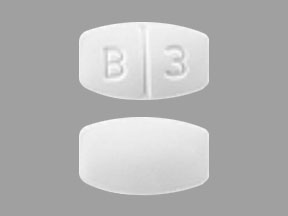
Buspirone Coupons & Savings Card – Discount Prices from $10.81
Generic for: Bucapsol
My prescription
Edit
10MG, Buspirone (60 Tablets)
Select pharmacy

CVS
$19.56
COUPON PRICE
Walgreens
$10.81
COUPON PRICE
Albertsons
$13.51
COUPON PRICE
Walmart
$16.90
COUPON PRICEBuspirone savings card
Show this card to your pharmacist
Walgreens
$10.81
BIN
ID
PCN
GRP
019876
LH19C1A7B3
CHIPPO
LHX
Powered by
More prescriptions for anxiety
More prescriptions for anxiety
Price history for Bucapsol (brand) & Buspirone (generic)
60 Tablets, 10MG
Average retail price for Bucapsol
Average retail price for Buspirone
Average SaveHealth price for Buspirone
Our price history data is based on aggregated prescription data collected from participating pharmacies in America. Our prescription data updates daily to reflect the latest price changes. If you notice a missing data point, it means there wasn't sufficient data available to generate a monetary value for that date.
We analyzed Buspirone prices for (10MG, 60 Tablets) over the last 12 months. The average retail price was $30.25, while the average price using the SaveHealth discount card was $8.75. That's a savings of approximately 71.07% when using our Buspirone coupon.
Compared to the generic version, Bucapsol had an average price of $3553.50 over the same time period. With the SaveHealth savings card, Buspirone is 99.75% cheaper on average than Bucapsol.
*Retail prices are based on pharmacy claims data, and may not be accurate when we don't have enough claims.
Buspirone dosage forms
Dosage Quantity Price from Per unit 5MG 1 Tablet $9.02 $9.02 5MG 30 Tablets $9.66 $0.32 5MG 60 Tablets $10.33 $0.17 5MG 90 Tablets $10.99 $0.12 5MG 100 Tablets $11.21 $0.11 5MG 180 Tablets $18.97 $0.10 5MG 270 Tablets $20.96 $0.08 5MG 500 Tablets $26.03 $0.05 5MG 1000 Tablets $37.06 $0.04 7.5MG 1 Tablet $2.64 $2.64
| Dosage | Quantity | Price from | Per unit |
|---|---|---|---|
| 5MG | 1 Tablet | $9.02 | $9.02 |
| 5MG | 30 Tablets | $9.66 | $0.32 |
| 5MG | 60 Tablets | $10.33 | $0.17 |
| 5MG | 90 Tablets | $10.99 | $0.12 |
| 5MG | 100 Tablets | $11.21 | $0.11 |
| 5MG | 180 Tablets | $18.97 | $0.10 |
| 5MG | 270 Tablets | $20.96 | $0.08 |
| 5MG | 500 Tablets | $26.03 | $0.05 |
| 5MG | 1000 Tablets | $37.06 | $0.04 |
| 7.5MG | 1 Tablet | $2.64 | $2.64 |
| 7.5MG | 20 Tablets | $5.31 | $0.27 |
| 7.5MG | 30 Tablets | $6.71 | $0.22 |
| 7.5MG | 60 Tablets | $10.92 | $0.18 |
| 7.5MG | 90 Tablets | $15.14 | $0.17 |
| 7.5MG | 100 Tablets | $16.54 | $0.17 |
| 7.5MG | 500 Tablets | $46.90 | $0.09 |
| 10MG | 60 Tablets | $10.81 | $0.18 |
| 10MG | 1 Tablet | $9.03 | $9.03 |
| 10MG | 20 Tablets | $9.60 | $0.48 |
| 10MG | 30 Tablets | $9.91 | $0.33 |
| 10MG | 33 Tablets | $10.00 | $0.30 |
| 10MG | 45 Tablets | $10.36 | $0.23 |
| 10MG | 90 Tablets | $11.72 | $0.13 |
| 10MG | 100 Tablets | $12.02 | $0.12 |
| 10MG | 120 Tablets | $12.62 | $0.10 |
| 10MG | 180 Tablets | $20.32 | $0.11 |
| 10MG | 270 Tablets | $22.98 | $0.09 |
| 10MG | 500 Tablets | $29.78 | $0.06 |
| 10MG | 1000 Tablets | $44.56 | $0.04 |
| 15MG | 1 Tablet | $2.55 | $2.55 |
| 15MG | 28 Tablets | $3.89 | $0.14 |
| 15MG | 30 Tablets | $3.99 | $0.13 |
| 15MG | 45 Tablets | $4.74 | $0.10 |
| 15MG | 50 Tablets | $4.99 | $0.10 |
| 15MG | 60 Tablets | $5.48 | $0.09 |
| 15MG | 90 Tablets | $6.98 | $0.08 |
| 15MG | 100 Tablets | $7.47 | $0.07 |
| 15MG | 120 Tablets | $8.47 | $0.07 |
| 15MG | 180 Tablets | $17.95 | $0.10 |
| 15MG | 270 Tablets | $27.35 | $0.10 |
| 15MG | 500 Tablets | $37.88 | $0.08 |
| 30MG | 1 Tablet | $1.01 | $1.01 |
| 30MG | 15 Tablets | $10.80 | $0.72 |
| 30MG | 30 Tablets | $12.60 | $0.42 |
| 30MG | 56 Tablets | $15.72 | $0.28 |
| 30MG | 60 Tablets | $16.20 | $0.27 |
| 30MG | 90 Tablets | $19.80 | $0.22 |
| 30MG | 100 Tablets | $21.00 | $0.21 |
| 30MG | 120 Tablets | $23.40 | $0.20 |
| 30MG | 180 Tablets | $35.69 | $0.20 |
| 30MG | 500 Tablets | $55.50 | $0.11 |
